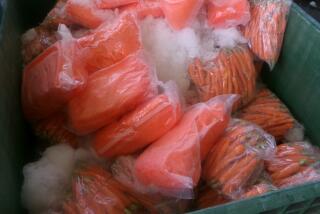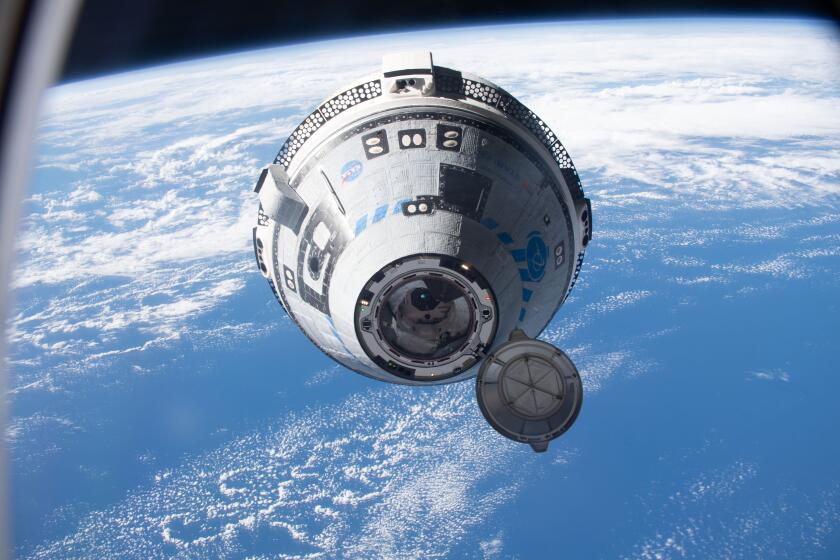FDA seizes nearly 14% of imported orange juice over fungicide
Nearly 14% of orange juice imported to the U.S. since early this month has been seized by the Food and Drug Administration because it contained trace amounts of a fungicide, carbendazim, according to the agency.
FDA officials said the juice was safe to drink but that carbendazim, used to combat a fungus that leaves black spots on tree leaves, was not allowed in the U.S.
“We don’t feel that this is a safety problem,” FDA spokeswoman Siobhan DeLancey said. “This is more of a regulatory issue.
“We don’t have any plans to call for a wholesale recall of orange juice.”
The FDA has also been testing domestically produced orange juice products. DeLancey said results of those tests would be released next week.
The agency began testing imported orange juice in liquid and concentrate form Jan. 4. Beverage giant Coca-Cola Co., which distributes orange juice under the Minute Maid and Simply Orange brands, said it had found the fungicide in its juice and rival juices, and reported the findings to the agency.
Coca-Cola spokesman Dan Schafer declined to comment Friday except to say, “All our products are safe and wholesome, and consumers can enjoy them with confidence.”
The FDA has collected samples from 80 shipments of juice and concentrate since testing began. Six of the seized shipments were from Canada and five from Brazil, DeLancey said. She said she did not know the volume of product in those shipments.
The U.S. imported $438 million worth of orange juice in 2010, according WiserTrade, a Massachusetts-based research organization.
Juice Product Assn. spokeswoman Stephanie Meyering said it was too soon to know how the FDA’s action might affect orange juice sales or prices in the U.S.
The FDA said it would hold on to the seized orange juice products for up to 90 days. The shippers can take the products back during that time or destroy them under agency supervision, DeLancey said.
FDA seized shipments it tested that had a minimum of 10 parts per billion of carbendazim. The agency said the highest level of carbendazim discovered was in a shipment that came from Brazil — it had 52 parts per billion.
DeLancey said the federal Environmental Protection Agency has determined that carbendazim poses no health risks at up to 80 parts per billion.
The Juice Products Assn. said the standard the FDA is following is too strict for concentrated products.
“The juice industry endorses and applauds FDA’s oversight of imported orange juice concentrate,” the trade group said in a statement. “However, juice processors maintain that evaluating orange juice on an ‘as consumed’ basis rather than as concentrate, which no one drinks as is, is the logical and practical way to assure safety for the consumer.”
The trade group said concentrate should not be seized unless it’s found to have the fungicide at 60 parts per billion.







